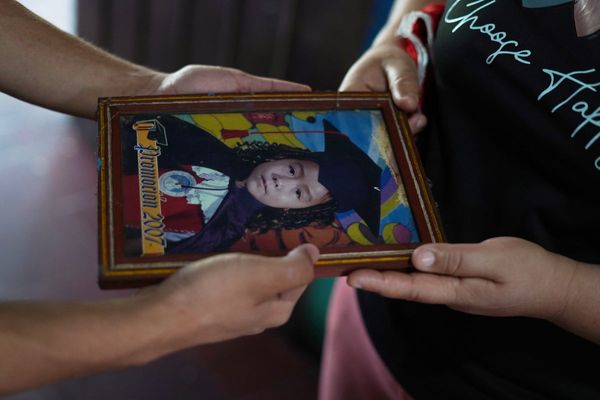
Councils in England are paying more than £1m a year for a single place in privately run children’s homes, with operators citing the cost of living crisis as a reason for raising their prices, the Guardian has learned.
Private providers have been accused of making “obscene” profits out of some of society’s most vulnerable children, as local authorities reveal they are being quoted as much as £50,000 a week (£2.6m a year) for one child.
Children with complex needs – such as having received death threats, behavioural problems, autism spectrum disorders or being a danger to themselves or others – may require supervision from staff with specialist training, or numerous carers.
A local authority in the north-east told the Guardian it had “very reluctantly” paid £18,500 a week (£962,000 a year) for one child, while Liverpool council revealed it was paying £780,000 a year for a child who needs three carers.
A report from Bournemouth, Christchurch and Poole children’s services department, which last week was issued with a statutory notice to improve, said placements for the most vulnerable children had reached £1.2m a year for one child “who may perhaps need a 4:1 staff ratio (4 carers to 1 child)”.
The Ministry of Justice says it costs £270,000 a year to keep a child in youth custody in a secure, state-run children’s home. These house children who have been sentenced for the most serious crimes, including murder.
A council in the West Midlands told the Association of Directors of Children’s Services (ADCS) it was quoted £25,000-£50,000 a week for a secure “wing” for one child with a deprivation of liberty order. The child was deemed a risk to others and was the subject of an Osman warning, meaning police believe there is a credible threat to their life, plus a secure order and a care order.
Profit margins for the 15 largest private children’s home operators average 22.6%, according to the Competition and Markets Authority. Average prices are £4,865 a week for a local authority place and £4,153 for a private placement, a review by the Personal Social Services Review Unit found. This is up from about £3,000 in 2016 and prices are rising week by week, councils say, as providers cite the cost of food, petrol and energy.
The most expensive placements are with private providers, who say high costs are dictated by the extreme needs of the children.
Mark Kerr, the deputy chief executive of the Independent Children’s Home Association (ICHA), said: “Such high-level needs and risks require significant specialised care 24 hours a day to ensure they are kept safe and their needs are met. It is important to note such levels of need are often a result of previously failing to invest in the right provision at the right time.”
The Guardian contacted more than 100 local authorities in England to ask the cost of their most expensive children’s home placement. Of those that replied, many said they had at least one child whose care cost £10,000 a week or more, with providers increasing their prices further in recent weeks and blaming the cost of living crisis.
Medway in Kent said it had 12 children in placements costing more than £10,000 a week in the last five years. It spent £13,700 a week for nine months on several different private placements for a young person who needed three-to-one support, with staff working nights. All staff needed to be restraint-trained and the young person was subject to a deprivation of liberty order.
Halton in Merseyside said it had paid £12,115 a week for a crisis placement, required at short notice, for a 13-year-old girl with special needs after a “fire setting incident”. Children who have a history of arson are particularly difficult to place, with providers reticent to accept such a difficult request from local authorities.
“You have providers looking at pen portraits of 30 children and deciding who’s the easiest, who’s going to cause the least disruption to the home, who’s got the least care history, no history of arson or challenging behaviour … The providers are looking for the easiest young person to take into their home for the maximum profit,” said Julie Jenkins, the director of children’s services at Calderdale in West Yorkshire.
Steve Reddy, the director of children’s services in Liverpool, said the council was spending £15,000 a week (£780,000 a year) for a place for a child who needed to be supervised by three carers. The child has autism spectrum disorder (ASD), attention deficit and hyperactivity disorder (ADHD) and self-harms, resulting in repeat hospitalisations.
Reddy said that he had recently turned down a bid from one operator who quoted £30,000 a week. “Some of the profits being made are frankly obscene,” he said.
Steve Crocker, the president of the ADCS, said: “Meeting children’s needs, not maximising profits should always be the priority. A comprehensive national placement strategy is needed to ensure the right homes are available in the right places.
“ADCS has previously called for the introduction of legislation which prevents for-profit operations, or as a minimum caps the level of fees chargeable, in fostering and residential services. Whilst this will take time to achieve, ADCS is committed to the aspiration of moving to a not-for-profit model.”
A Department for Education spokesperson said: “All children and young people deserve to grow up in stable, loving homes, and no private company should exploit those in need of placement.
“We commissioned an independent review of children’s social care, which will set out to radically reform the system, and are working hard to raise standards for children in care while it continues.”







